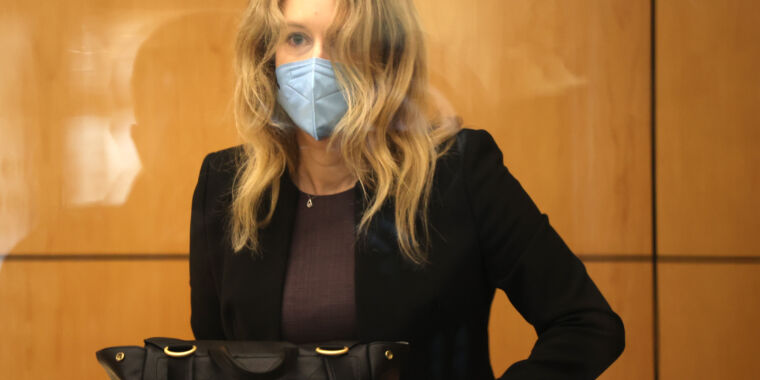Holmes never told $100M investor of problems with Theranos technology - 3 minutes read

Theranos sent a major investor financial projections that were wildly optimistic—perhaps even deceptive—the jury heard yesterday in the criminal trial of company founder and former CEO Elizabeth Holmes.
Laura Peterson, who oversees investments for RDV Corporation, the DeVos family office, testified that Theranos sent her company forecasts that predicted hundreds of millions of dollars in the very near future.
The DeVoses were just one of a handful of wealthy families that Holmes courted to invest in her company. The DeVos family fortune, pegged at around $5 billion today, stems from the Amway Corporation, a multilevel marketing company founded by the father-in-law of Betsy DeVos, the former secretary of education. Holmes also wooed the Walton family of Walmart fame and Rupert Murdoch.
Peterson got the impression that the company was “hand-picking” investors. Peterson said that while she was vetting Theranos, it felt like Theranos was vetting the DeVoses. “She was inviting us to participate in this opportunity,” she said. Holmes told her that she was looking for long-term partners rather than more typical private equity investors who might want to cash out with a quick IPO.
Peterson volunteered to look into Theranos after her boss, Jerry Tubergen, flagged the investment opportunity for family members in September 2014. “This morning I had one of the most interesting meetings I can recall with the woman profiled in the attached Fortune magazine article,” he wrote in an email.
Things moved quickly from there. Peterson, Tubergen, and members of the DeVos family flew to California for a meeting at Theranos’ headquarters. There, they heard a pitch and received a demo of the company’s proprietary testing device—one of the DeVoses had her finger pricked for testing. Peterson told the prosecution that she and the others went into the meeting expecting to invest $50 million. But after the meeting, where they heard that others were investing nine-figure sums, they huddled in the parking lot and decided to increase their commitment to $100 million.
What else prompted the family to double their investment? For one, they were impressed with the technology and the claims that it could be used in military helicopters and other challenging environments. They also thought Theranos’ major risks were mostly in the rollout of its technology at Walgreens and elsewhere. The startup had “long-term contracts, so risk is execution,” Peterson’s notes from the meeting said.
Peterson and others were not aware that Theranos was having trouble getting results from its proprietary devices. Assistant US attorney Robert Leach asked Peterson if Holmes ever said that the company was relying on third-party devices for the majority of its tests.
“Would that have mattered to you?” Leach asked.
Why not? “They were telling us that it worked,” Peterson said. “We were relying on what we were told.” But it was more than that.
“We felt if we circumvented the process, we would be uninvited to participate,” she said. “We were very careful not to circumvent things and upset Elizabeth.”
Source: Ars Technica
Powered by NewsAPI.org